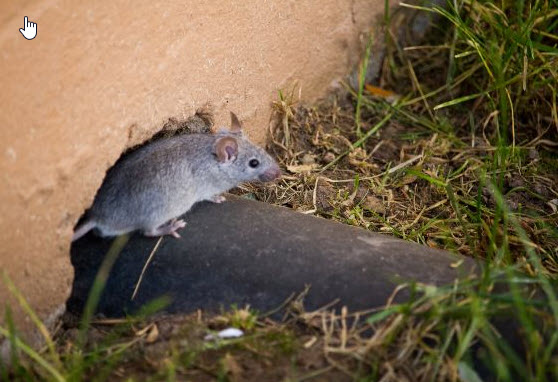
Will Cats Keep Mice Away? Unravelling The Truth For Homeowners
Are you tired of dealing with mice problem inside your home? Find out the truth about whether cats truly keep mice away and learn how Maximum Pest Control Services can help rid your home of these rodents for good.
Ever found yourself sharing your cozy home with some uninvited, tiny, and rather squeaky guests? If so, you’re probably looking for an effective way to keep these unwelcome rodents—mice, as they’re commonly known—at bay from home. Enter cats, aloof yet adorable predators who’ve been hunting mice since the dawn of time. But does their reputation matter to Mr. Mouse? Is it that simple?
In this comprehensive guide, we’re setting out on a mission to answer the oft-debated question: Will mice stay away if you have cats? Through an in-depth exploration into the world of cats, their hunting instincts, and their efficiency as mouse-hunters, we’ll also take you on a journey through their age-old rivalry with mice, and finally, compare them with other methods of mouse control. By the end, we hope to provide you with a solution that leaves you (and your furry offbeat predator) in peace.
“When making a decision about rodent control, facts and understanding about the predators become crucial. Let’s dive into the world of mice and their feline counterparts.”
The Feline Factor: Can Cats Really Deter Mice?
Delving deeper into the world of cats and mice, it’s important to ask: Do cats really keep mice away or is this just a common perception? Let’s uncover this mystery together.
Firstly, the characteristic behavior of a cat cannot be overlooked. Cats, by nature, are natural hunters. This has been a defining trait since they were first domesticated as a means of controlling pests amidst surplus crop storehouses. A game of chase with a mouse entertains your cat, tests its agility, and triggers its predatory instincts. If you’ve ever experienced finding a mouse “gift” left behind by your feline friend, you know the thrill of the chase is a beloved pastime for many cats. This is one clear reason why you might anticipate that having a cat around could effectively deter mice.
However, reality is a bit more complex. Domestic or outdoor cats don’t always engage in hunting behavior. Especially well-fed cats may not see a reason to go after a mouse, preferring a cozy nap instead. But even the laziest kitty can serve as an active deterrent for rodents thanks to its predator status. Mice, being aware of this danger, will try their best to steer clear of territories marked by a cat. Cats have keen senses, their ability to hear the communicative frequencies of mice, unknown to human ears, might give further agitations to the mice. So, it’s not necessarily the cat’s active hunting that keeps the mice away but their mere presence can do the trick.
Interestingly enough, there isn’t substantial research documenting the frequency of actual cat-versus-mouse encounters and the factors influencing such behaviours. While the anecdotes and historical ties between cats and mouse control are compelling, the exact dynamics of this relationship may vary on a case-by-case basis.
So, do cats keep mice at bay? The answer leans towards a yes – but not purely due to the vision of a relentless hunter that we often associate with our feline friends. It’s a combined effect of their historical roles, natural instincts, and the fear they instill in the mice. But remember, your cat’s motivations and interest in chasing mice may vary, so a feline presence is not a foolproof measure for a mouse-free home. It’s always wise to have a professional pest control strategy in addition utilizing the natural deterrents your feline friend may provide.
Understanding Your Cat’s Hunting Instincts
On first glance, it may seem rather odd why your well-fed domestic kitty, who has no survival need to hunt, takes distinct pleasure in chasing mice. Well, according to Dr. Elise Christensen Bell, it all boils down to their intrinsic hunting instincts.
It’s no secret that cats are natural-born hunters. Factually, their lineage traces back to their wild ancestors who weren’t exactly reliant on a bowl of kibble, hence hunting was a vital necessity. They used their honed skills to ambush, pounce, strike, and fish for prey, usually at night when most prey animals are active.
Modern house cats have retained these hunting skills. They may have the luxury of consistent meals placed in their bowls every day, but there’s an inherent need to express these instincts. Although cat food meets all their nutritional needs, the chase and catch instinct is so deeply rooted that cats often hunt for entertainment and to practice their skills.
Mother cats pass down these hunting traits to their kittens. Have you ever found a dead mouse mysteriously placed on your doorstep by your cat? This is a demonstration of a teaching technique frequently used by momma cats. They usually bring dead prey for their kittens to eat, signalling a hunting lesson.
Moreover, even the behavioural patterns of gifting prey to their human owners can be tied back to their hunting instincts, as Dr. Bell explains. In other words, that mouse by your feet is a token of appreciation and teaches you—perceived by your cat as an inept hunter—to assist in the process.
Coupled with few adaptations such as excellent vision in dim light, cats make effective mouse deterrents. Their eyes are equipped with a reflector system that intensifies available light, enabling them to hunt effectively at night. A word of caution though – having a cat does not necessarily mean your home will be completely free of mice. Cats can help keep the mouse population in control but not entirely eliminate it.
So, while your feline friend’s hunting habits might seem a bit gruesome, there’s no denying their usefulness in controlling your home’s mouse problem. It’s a practical case of nature’s pest control!
Cats and Mice: Unveiling The Age-Old Rivalry
What often sparks this rivalry between cats and mice? A cat’s natural-born hunting instinct is surely a significant factor. Cats are notorious for their late-night mousing escapades, using age-old hunting techniques such as ambushing, pouncing, striking, and even fishing for their prey. As these techniques suggest, cats hunt mice not only as a source of sustenance but also for entertainment and practicing their hunting skills. It’s a quirky but a crucial aspect of feline behavior.
The folks who originally brought felines into our homes and farms did so for a very pragmatic reason: pest control. Over centuries of domestication, their efficiency in keeping rodent populations in check has remained a valued trait. As predators, cats possess sensory capabilities that far exceed those of humans. Their ability to hear mice communicate in frequencies that we cannot perceive gives them a significant advantage in the hunt.
Yet, the efficacy of using cats as a means of mouse deterrence is not always assured. While many domestic or outdoor cats retain a ferocity for hunting, others may prefer cuddling on your furniture to prowling the night. Yet, whether your cat embodies the spirit of a ferocious hunter or a docile house pet, their mere presence can influence the behavior of mice.
Mice, being very much aware of the dangers that cats pose, will generally try to avoid areas where they detect a feline presence. It shouldn’t be surprising, then, if your home’s rodent population decreases following the arrival of a kitty.
“Ultimately, while cats may not completely eradicate a persistent mouse problem, their presence alone can act as a deterrent that keeps mice at bay”.
Evaluating the Effectiveness of Cats as Mouse Deterrents
So, can a whiskered pet actually keep those pesky rodents away from your dwelling? Before jumping to any conclusions, it’s important to look at both sides of the coin. It is well-established that mice have a strong survival instinct and are well-aware of their feline predators. Thus, an innate sense of vigilance prompts them to avoid areas where they sniff out the presence of cats. This fact alone seems to extend a thumbs-up to the notion of cats as rodent deterrents.
Historically speaking, cats were indeed domesticated for the purpose of pest control. Farmers kept them around to protect their surplus crops from rodents, a fact that gives further credence to this theory. So, if history is to be vouched for, cats do seem to have a mice deterring role.
On the flip side, however, concrete evidence concerning cats and their mice-catching prowess is scant at best. Not all mousers are made equal, and the frequency of a cat catching a mouse can vary greatly based on factors that we don’t fully understand yet. It’s also worth noting that not all cats are interested in mouse hunting—particularly domesticated and outdoor cats, who often have their needs fully met by their owners.
Apart from their predatorial instincts, cats chase and catch mice for two primary reasons—entertainment and practice. To them, a mouse chase can equate a thrilling game and a chance to hone their hunting skills, rather than an act to rid their environment of pests.
Given these contrasting facts, Dr. Christensen Bell, a feline behavior expert, suggests controlling pest problems by keeping cats indoors and training them to leave their prey at a designated spot. This approach amalgamates your cat’s natural instincts with efficient pest control methods.
To sum up, while having a cat can potentially deter mice from infesting your living space, they are not an infallible solution to your rodent problem. Every cat is a unique individual with its own behaviours and instincts, and its skills as a mouser can’t always be predicted or controlled. Therefore, it’s advisable also to implement other tried-and-tested methods of pest control in conjunction with your pet’s natural hunting instincts for optimum results.
Does the Breed of Your Cat Matter in Mouse Control?
Many folks wonder if the breed of their cat influences its ability to control a mouse problem. This is an area filled with anecdotal evidence, where a lot of people swear by the hunting prowess of their Siamese or the mousing skills of their Main Coons. However, scientific research does not definitively point towards one breed being more effective than another when it comes to keeping rodents at bay.
The driving force behind a cat’s desire and ability to hunt is generally rooted in its individual personality and experiences rather than its breed. Factors like early exposure to hunting or interactive play during kitten-hood can significantly impact a cat’s inclination towards chasing off mice. Yet, it’s worth noting that some breeds like the American Short-hair are known for their hunting history.
An important consideration is whether the cat is solely an indoor pet or also has outdoor access. Outside cats may encounter a wider array of prey and thus hone their hunting skills more. These experiences can potentially make them more effective at controlling a mouse issue than an indoor-only cat, regardless of breed.
Ultimately, whether your fluffy friend is an adept mouser depends largely on its individual temperament and life experiences. While the breed might play a small role, it is not the sole determinant of your cat’s prowess as a mouse deterrent.
However, remember that hunting mice can expose your cat to various health risks such as diseases and parasites. International Cat Care and Dr. Christensen Bell advise keeping cats indoors and finding safer means of pest control. In some instances, it may be more beneficial to invest in professional pest control services instead of relying solely on your four-legged friend to keep the mice at bay.
Enhancing Your Cat’s Mouse Hunting Abilities
So you’ve got a cat and you’re keen to capitalize on its natural hunting instincts to keep those pesky mice at bay? Fantastic idea! It’s important, however, to ensure you’re providing your feline friend with ample opportunities to practice those essential hunting skills.
Exercise plays a vital role in honing a cat’s hunting prowess. Regular physical activity not only helps your cat to stay in top condition but also stimulates its natural instinct to hunt. Incorporate toys that mirror the erratic movements of a mouse into your cat’s playtime. Swing these toys quickly, then hide them behind furniture or under rugs, mimicking the natural hide-and-seek tactics of a mouse.
Engaging in active play sessions like these regularly, particularly in the evening hours when cats are naturally more active, can greatly enhance your pet’s ability to hunt and catch mice. Remember that your cat will probably appreciate the excitement of the chase just as much as catching the ‘prey’.
Interestingly, another seemingly strange cat behavior can also contribute to their hunting skills. Have you ever had your cat present you with a ‘trophy’ mouse – dead or alive? Contrary to what you might think, this isn’t just your cat being gross. It’s actually part of their instincts as predators. It’s a way they can proudly display their hunting prowess and contribute to their pack, that is to say, you and your household!
So, if you’re keen on leveraging your cat’s natural ability to keep mice away, ensure plenty of opportunities for them to exercise and engage their hunting instincts. Remember, practice makes perfect. Even if that means dealing with a mouse ‘gift’ every now and then!
Comparing Cats to Other Methods of Mouse Control
So, you’ve heard all about cats as potential mouse deterrents, and the thought of it seems appealing. However, how does having a feline compare to other means of mouse control? Let’s break it down for you.
Traditional methods of reducing mouse populations in your home include traps, poison, and hiring pest control services. Traps can be effective but require frequent monitoring and manual removal of captured rodents. Poison is often frowned upon due to the risk of accidental ingestion by non-target animals or children. Additionally, the aftermath of rodents dying in inaccessible places within the home can lead to unpleasant odors.
On the other hand, professional pest control methods provide targeted and effective treatment but can be costly and often involve the use of strong chemicals. Comparatively, cats offer a natural, entertaining, and cost-effective solution, provided they exhibit their innate hunting instincts.
But there’s a caveat. As domesticated as they may be, what we can’t forget is that cats have their quirks. For example, they may present their ‘catch of the day’ to you as a gift, leaving you with the unpleasant task of disposal. Also, their success rates aren’t always predictable, being influenced by variables such as the cat’s personality, age, health, and breed.
Beyond this, remember that not all cats will hunt. The same frisky feline that prowls your hallways at midnight might have no interest in chasing after a mouse.
In conclusion, while cats can be a fun and natural form of mouse control, they aren’t a guaranteed solution and indeed aren’t suitable for everyone. It’s crucial to balance these considerations with other mouse management strategies for optimal pest control.
Factors to Consider Before Relying on Cats for Mouse Control
Before declaring your feline friend your primary line of defense against mice, several essential factors warrant careful consideration. Sure, your cat may be a natural hunter, and yes, their presence could deter mice from venturing into your territory, but allow us to dig deeper to reveal the full spectrum of this issue.
First and foremost, you should understand that cats, much like humans, have individual personalities and preferences. Some cats are more than willing to chase after a mouse, but others may have less predatory instinct or just show no interest. Broadly speaking, domestic cats or outdoor cats may not always be the conquering warriors we want them to be when it comes to hunting mice.
Secondly, mice are intelligent creatures. They quickly recognize the hazards a cat poses and aim to avoid areas pervaded by the scent of a predator. Therefore, while your cat might deter new mice from entering, it may not be as effective in uprooting an established infestation. It’s like trying to pour water out of a boat that keeps taking on water. Unless the source is addressed, the problem won’t be permanently solved.
Moreover, catching mice can pose potential health risks to your cat. Mice can carry diseases or parasites that can be harmful to your pet. Thus, the seemingly natural exercise of hunting mice could unintentionally expose your feline to hazardous health conditions.
Lastly, it’s essential to reference the scientific view. According to Dr. Christensen Bell, while you can train cats to leave their prey in a particular spot, there’s not an abundance of research detailing how frequently cats catch mice compared to other species. The murky waters of this reality suggest that relying solely on cats for mouse control could be a gamble.
In summary, while cats can play a role in controlling a mouse population, they shouldn’t be your only strategy. The best approach is a holistic one: Mouse-proof your home, invest in effective pest control measures like traps or glue boards, and sure, let your cat join the fight too. Just remember, it’s a team effort, and your cat is just one player on the roster. Balancing all these factors will help ensure a mouse-free environment, maintaining the comfort and tranquility of your home.
“Not all cats have the same level of predatory drive, and thus not all cats will chase and kill mice.”
Indeed, the presence of a well-fed feline companion in your home doesn’t necessarily guarantee a mouse-free environment. A slice of warm, creamy pizza or a platter of gourmet cat food might be more tempting to an otherwise mouser cat than a run-of-the-mill mouse. Even the instinctive thrill of the chase may not be enough to pique the interest of a truly satiated kitty. What’s more, cats that are well-fed tend to become selective eaters – they’ll easily drop a captured mouse if it doesn’t meet their taste buds’ expectations.
Being natural hunters, cats do not always hunt for sustenance. Many find joy in the process of stalking, chasing, and capturing their prey – elements that stimulate and satisfy their deeply embedded hunting instincts. However, beyond the games, a well-loved cat that’s regularly fed doesn’t need to hunt mice for nourishment, making the chances of them actively pursuing these pests variable.
Further still, the world of mice isn’t simply black and white. Mice have become astutely aware of the threat of feline predators over generations and have developed keen survival skills. They can quickly detect and avoid areas with lurking threats, including a cat-filled home. Subsequently, while a cat may ward off mice for a time, expecting them to solve a rampant mice problem might result in disappointment.
Then, let’s not forget the potential health risks to cats that hunt mice. Outdoor hunting exposes your beloved pet to the risk of being infected with diseases and parasites mice are known carriers of, a risk you certainly wouldn’t want to take. These risks have, in fact, led many to strongly advise against letting cats roam outdoors for such purposes.
Alarmingly, there isn’t a knowledgeable amount of research conducted on how frequently cats catch mice compared to other species, and what influences their hunting behavior the most. This area remains largely unexplored and therefore caution is advised when making assumptions about your cat’s perceived mouse control prowess.
While cats certainly have a reputation as mouse hunters, relying solely on them to keep your home mouse-free might not yield the desired result. Incorporating a multi-faceted approach, such as combining modern mousetraps, professional pest control services, and practicing proper sanitation can often augment the efforts of your feline friend, creating a far more forceful deterrent against these unwanted threats.
How often do cats catch mice?
This isn’t a one-size-fits-all answer. Several factors come into play that affects a cat’s likelihood of catching mice. These factors can include the cat’s age, health, hunting instincts, and even the mouse’s survival instincts. But it’s also important to add that cats are natural hunters. They have an innate ability to hear mice communicate in frequencies humans cannot even begin to pick up. This gives cats a definite advantage when it comes to hunting mice.
First, let’s address the cat’s nocturnal habits. Mice are most active during the night from dusk to dawn, and cats, being innate predators, tend to be more active during these times as well. They lie in wait, ambush their prey by pouncing and striking with a precise, well-timed leap and swipe of their paw. It’s truly fascinating to observe.
After catching a mouse, you might find your cat presenting it to you as a sort of ‘trophy’. While it may be a little grisly to human sensibilities, this is a natural instinct for cats. They’re proud of their hunting prowess and want to share the fruits of their labor!
Your cat’s specific diet might also influence how often it catches mice. Cats are known to be pretty picky eaters. While some cats may happily hunt and eat mice, others may just enjoy the thrill of the chase and choose to leave their catch uneaten.
It’s quite clear that while not all cats are efficient mouse-catchers, their mere presence can often deter mice from entering your home. Mice are well aware of the threats cats pose and will generally avoid areas where they detect these predators. Even if your feline companion isn’t an expert mouser, his or her presence may well be having a greater deterrent effect than you realize!
What are the risks for cats hunting mice?
Wild mice aren’t merely harmless little creatures skittering around in search of cheese. They’re potential carriers of diseases and parasites that can present serious health hazards to your feline friends. The act of catching and consuming a mouse may expose your cat to these threats. Understandably, this can be a major concern for you. The tasks of hunting and dispatching small prey like mice involve risks that should not be overlooked.
Unsupervised cats can also face more-than-minor altercations outdoors, especially in the wild. Nature is bathed with dangers of the world that come in all shapes and sizes. Larger animals, for instance, are potential enemies who wouldn’t hesitate to inflict harm on your cats.
A noteworthy point here is that while cat owners obviously want their pets to stay safe, they often do not envisage these lurking dangers. Your cat may be a skilled and nimble hunter, but it doesn’t make them immune to these threats. Therefore it isn’t recommended to allow your cat to roam outdoors and engage in unfettered hunting.
In summary, while cats’ natural instincts lead them to catch and kill mice, the risks involved do not always justify the behavior, especially when it comes to potential disease exposure and the dangers of outdoor environments. Unlike their wild or semi-wild counterparts, domestic cats have the privilege of reliable meals and shelter at home. As such, the need to hunt mice becomes more about recreation or honing their natural instincts, rather than a necessity for survival.






